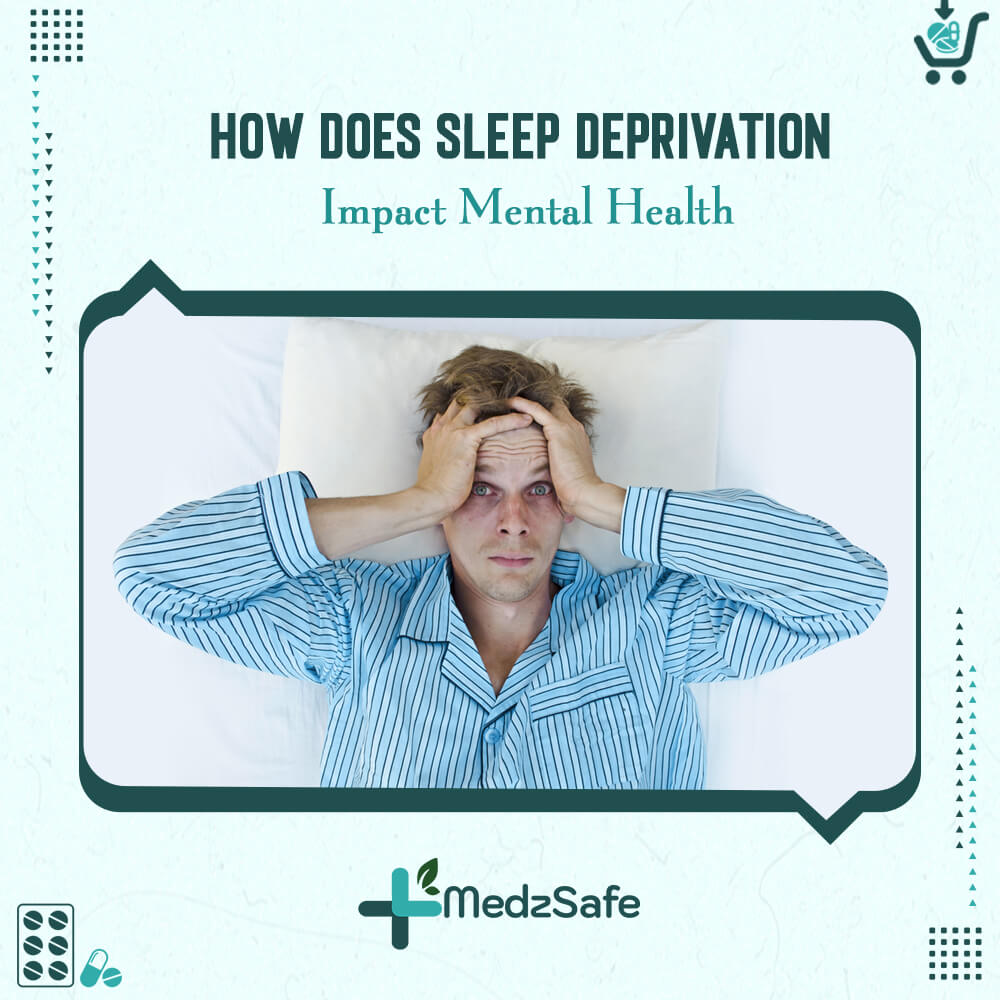Sleep deprivation can have a profound impact on internal health, affecting colorful aspects of cognitive functioning and emotional well-being. The consequences of not getting enough sleep go beyond feeling swim and tired during the day. Sleep deprivation can vitiate colorful cognitive functions similar to attention, attention, and decision-making capacities. It becomes harder to concentrate and retain information, leading to dropped productivity and performance in diurnal tasks.
Impacts of Emotional Disturbances & Lack of Sleep
Both can significantly impact emotional regulation, making individualities more perverse, temperamental, and prone to passing negative feelings. Sleep-deprived individuals may find it delicate to manage stress, leading to increased anxiety and perversity.
Cognitive Behavioural Remedy for Insomnia CBT- I am a structural remedial approach specifically design to address wakefulness and ameliorate sleep. It focuses on relating and changing negative study patterns and actions that contribute to sleep problems, eventually perfecting emotional well-being.
Identical ways to get rid of sleep deprivation
- Make sleep precedence in your diurnal routine. Aim for 7- 9 hours of continuous sleep each night. Establish a harmonious sleep schedule by going to bed and waking up at the same time every day, indeed on weekends.
- Ensure your sleep terrain is conducive to peaceful sleep. Make your bedroom comfortable, dark, quiet, and at a cool temperature. Consider using earplugs, eye masks, or white noise machines to block out any disruptive stimulants.
- Develop a comforting routine before bed to signal to your body that it’s time to sleep. This can include conditioning like reading a book, taking a warm bath, or rehearsing relaxation ways similar to deep breathing or contemplation.
Habitual sleep deprivation
Habitual sleep deprivation can increase stress situations and emotional reactivity. Rehearsing stress operations in ways similar to deep breathing exercises, awareness contemplation, and progressive muscle relaxation can help reduce anxiety and promote emotional balance.
- Habitual sleep deprivation is associated with an increased threat of developing mood diseases similar to depression and anxiety. Sleep plays a pivotal part in emotional processing and regulation, and a lack of quality sleep can disrupt the balance of neurotransmitters involved in mood regulation. Regulation is achieved by Zopiclone Australia usage
- Increased threat of Psychiatric diseases. Sleep deprivation has been linked to an increased threat of developing colorful psychiatric diseases, including bipolar complaints and schizophrenia. Disintegrated sleep patterns can spark or worsen symptoms in individuals formerly diagnosed with these conditions.
- Disabled Memory and Literacy- During sleep, the brain consolidates recollections and processes information from the day. Without sufficient sleep, memory connection is compromised, leading to difficulties in literacy and retaining new information. To get out of this Zopiclone 7.5 MG helps to get enough sleep.
- Reduced Cognitive Inflexibility Sleep deprivation can vitiate cognitive inflexibility, making it grueling to acclimatize to new situations or switch between tasks. This can hamper problem-working capacities and creativity, impacting overall cognitive performance.
- Sleep deprivation affects the brain’s prefrontal cortex, which is responsible for decision- timber and impulse control. Zopiclone 10 MG aids to settle this issue to a great extent. This can lead to an increased threat- taking Action and poor judgment, potentially performing in accidents, or engaging in conditioning with negative consequences.
Weakened Immune System Sleep deprivation weakens the vulnerable system, making individuals more susceptible to infections and ails. The compromised vulnerable system can further contribute to internal health issues, as physical health and internal well-being are nearly connected.
Reduced Managing Mechanisms Acceptable sleep is pivotal for maintaining emotional adaptability and managing diurnal stressors.
Hindrance with Social connections
- Regular Exercise is the key. Engaging in regular physical exertion can have positive goods on both sleep quality and emotional well-being. Exercise helps regulate stress hormones, improves mood, and promotes better sleep. Still, it’s important to avoid violent exercise close to bedtime as it may intrude on sleep.
- Seek Social Support Reach out to musketeers, family, or support groups to partake in your passions and guests. Talking to someone who understands and offers support can help palliate emotional torture and give a sense of connection and confirmation.
- Practice Emotional Regulation Ways Learning and rehearsing ways to regulate feelings can be salutary. This may include relating triggers, challenging negative studies, reframing perspectives, and developing healthier managing mechanisms.
Professional Counselling or Therapy
If emotional disturbances persist or significantly impact diurnal life, seeking professional help from a therapist or counselor trained in sleep diseases or internal health can be salutary. They can give substantiated guidance, manage strategies, and support acclimatizing to your specific requirements.
The drug, if necessary in some cases, healthcare professionals may define short-term drugs to help address sleep disturbances and associated emotional disturbances. Still, drugs should always be bandy and specified by a good healthcare provider.
Wind-Up
Addressing emotional disturbances caused by sleep deprivation frequently requires a multi-faceted approach. It’s essential to prioritize healthy sleep habits while seeking support and guidance from healthcare professionals when demanded.
